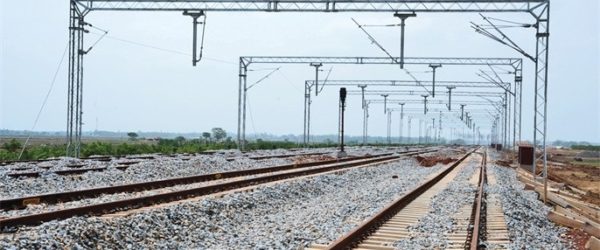
A high-level meeting chaired by Prime Minister Narendra Modi is learnt to have suggested to the Indian Railways to not rush through unilaterally with its grand drive of 100 per cent electrification of the country’s railway network. The Prime Minister is learnt to have nudged the policy correction while reviewing the work of the Railway Ministry at the PMO last Monday in the presence of the full Railway Board led by Railway Minister Piyush Goyal.
Modi is learnt to have raised questions on the 100 per cent electrification policy — pursued aggressively by Goyal since his arrival in Rail Bhawan in September last year — wondering what the need/ justification for it was, especially because massive working infrastructure is already in place for diesel, the other mode of traction.
The PM was of the view that premature idling of in-service rolling-stock assets from the diesel stable was not a good idea, sources told The Indian Express. The Indian Railways have around 5,800 working diesel locomotives.
“Electrification is a long-term process. Its timeframe has to depend on the Budget,” said a source who is aware of the deliberations. “These things do not happen immediately. The diesel stock that we have has a certain life, and it (the changeover) will take time,” the source said.
One major takeaway for the Railway Board from the meeting was that the “100 per cent electrification” policy was to be put on hold, without missing the yearly physical targets for electrification as and when decided every year on a need basis, sources said.
The message that Railways got from the meeting was that the PM was more interested in the national transporter achieving its yearly budgetary expenditure targets towards electrification and other capital spends.
“The electrification plan should be annual target-based. Budget allocation-based annual commitments for electrification should be taken up,” another top source said, summarising the upshot of the review meeting.
The Railways have already announced plans to electrify their entire network by 2021-22. “Ministry of Railways has decided to electrify balance 38,000 Broad Gauge (BG) Route Kilometer (RKM) for achieving 100% electrification,” Minister of State for Railways Rajen Gohain said in a reply to an unstarred question in Lok Sabha, setting 2021-22 as the timeframe to achieved it.
Lok Sabha was informed of ambitious annual targets of upwards of 4,000 km to meet this deadline. In the 2017-18 financial year, however, only around 2,500 km was achieved until the end of February, far short of the 4,000-km route electrification target.
There have been calls from within the government for a “strategic rethink”, for both financial and operational reasons, of the 100 per cent electrification policy. Finance Minister Arun Jaitley did not use the phrase “100 per cent electrification” in the Budget, and instead referred to “optimal electrification”.
“We are moving fast towards optimal electrification of railway network. 4,000 kilometres are targeted for commissioning during 2017-18,” Jaitley said in his Budget speech.
The Railways have thus far deployed a staggered approach towards the electrification of tracks. Over the years, they have electrified high-traffic routes based on the projected rate of return on the heavy capital investment that is involved. They have not identified for electrification routes with sub-optimal traffic — and the projected return on investment is not favourable for a majority of the 38,000 route kilometres that remain to be electrified.
Sources said the decision to electrify 100 per cent of the network was taken without adequate multi-disciplinary high-level consultations last year. The push for electrification triggered alarm bells in the US multinational General Electric last year after Goyal instructed the Railway Board to explore the option of exiting the diesel locomotive project in Marhowra (Bihar). GE had signed an agreement with the government in 2015 to build the modern diesel locomotive factory in a joint venture with the Railways to supply 1,000 high horsepower diesel engines exclusively to the Indian Railways over 10 years. The Railways subsequently backed off to allay GE’s apprehensions.
